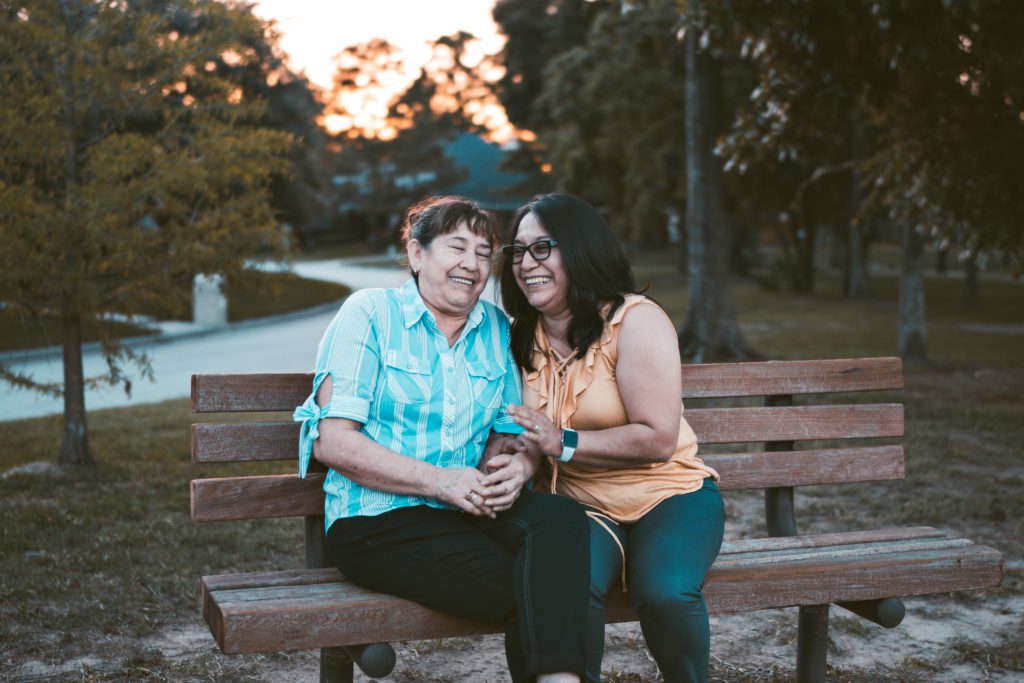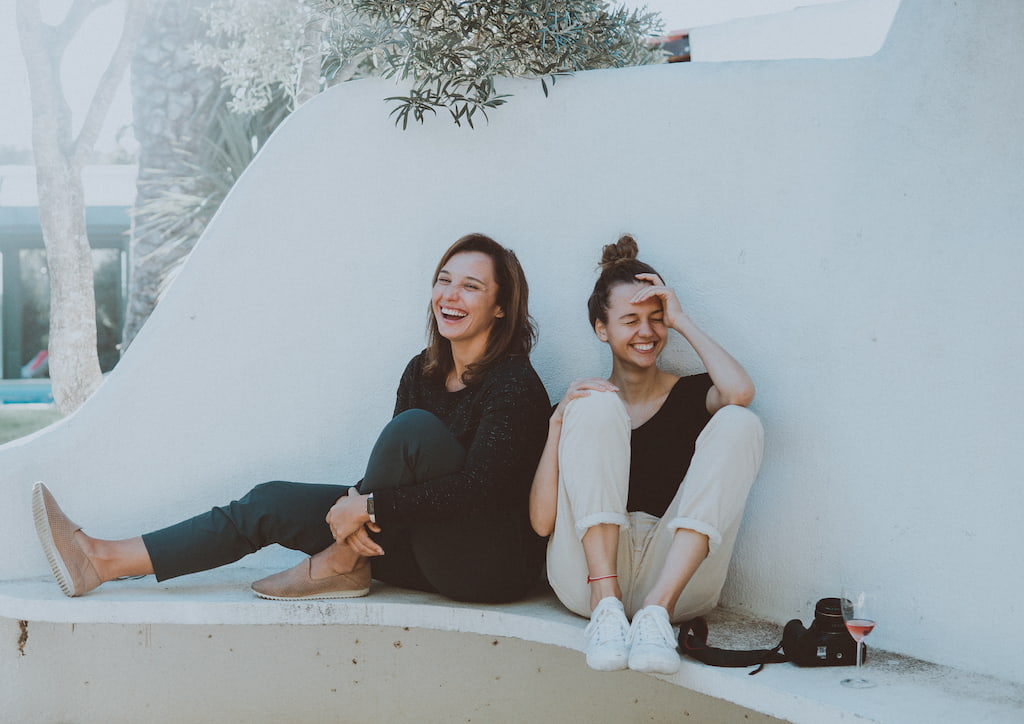Why Do We Need Friends?

Contents
Helen Keller once said, “I would rather walk with a friend in the dark than walk alone in the light,”. This statement echoes a sentiment many of us feel. We as human beings are social creatures. We crave deep, meaningful connections. Though oftentimes we feel like we’re unable to form bonds that go deep enough to be called true friendships. We end up having shallow conversations that don’t really scratch the surface. Or perhaps we don’t feel as though we’re an integral part of our friends’ lives – or that they’re an important part of ours. Sometimes we feel we can’t connect with the people around us at all. So, how can we overcome this? How can we form and cultivate friendships that will last us a lifetime?

Why Do We Need Friends Anyways?
Scientists are baffled as to why human beings really need friends. All they know, for sure, is that we do. Over the years, numerous studies have found that having genuine friendships is very beneficial for our mental well-being. A recent Harvard study revealed that forming close friendships promotes brain health as we age. In the past, it’s been proven that friendship extends a person’s life expectancy and even lowers various health risks, like heart disease.
The reason having friends is so good for us is that they serve as pillars in our lives. Friends support us when we need it the most. A divorce, a loss, a failed exam, a demotion… No matter what we’re going through, they will be by our side all the whole way through. We don’t know why we develop such behavioral patterns with our friends. Only that we do and that it is good for us.
How Is A Friendship Formed?
C.S. Lewis once described the moment we make a new friend, saying that, “Friendship is born at that moment when one person says to another: “What? You too? Thought I was the only one.” He could not have been more right. All relationships need a starting point, a common ground, so to speak. Having such a common ground is a great starting point to bond over. Though if we don’t build on them, if we don’t use the common ground we’re given, then we’ll never be able to turn an acquaintance into an actual friendship. So, what do we need to do to turn this pivotal moment into an actual relationship? How do we turn a stranger we have something in common with, into a real friend. And perhaps most importantly, how do we become a real friend ourselves?
Cultivating A Close Friendship
Relationships are complex. There is no “how-to” guide to navigate them, because every individual and every relationship is different. That being said, there are several factors that govern how friendships are formed. By meditating on these factors, we can better understand our friendships, our friends and ourselves. Only then can we begin to explore and finally resolve our perception of human connections.

Finding Common Ground
Finding common ground with those who we feel a connection with isn’t just a good starting point for friendship, it’s also a step that enables us to simultaneously learn more about them while also revealing more about ourselves. Most often we seek out similarities between us and the other person to begin building common ground. This could be anything. Attitude in life, values, interests, age, gender, socio-economic status, hobbies, experiences… Uncovering these kinds of similarities help us better understand the people before us. We feel like we know part of them and feel the urge to know more. The similarities we discover and expand on make us more open to the differences between our friends and us. It gives us more reasons to explore them and thus understand our friend better and better as time goes on. The more open we are to this, the deeper our understanding will be. And the deeper our understanding, the better a friend we will become.
Self-Disclosure.
The basis of any healthy relationship is trust. Though trust doesn’t just happen overnight. As you very well know, trust takes time to develop. One of the best ways of building trust is not only showing someone consistently over time how you behave, make decisions and treat others, but by being vulnerable. If we want trusting relationships, we have to be willing to open up to the person before us. We have to be willing to share with them personal things that they would otherwise not know about us and in doing so risk being hurt. Our feelings, our worries and innermost thoughts, private memories like breakups or past mistakes. The more open we are, the more vulnerable we allow ourselves to become. By doing this we give our friend a clear message: “I trust you with this information about me. I trust you not to hurt me.” Now, that’s not to say that we should be vulnerable with just anyone. Choose wisely who gets to hear your stories, but know that by never trusting anyone with any personal information, you may indefinitely distance yourself from creating any genuine friendships.
Our willingness to be trusting and vulnerable prompts our friends to be so as well. In this way we share into the lives of our friends and earn their trust. If we have issues connecting to others and forming non-superficial relationships, trust and vulnerability are excellent factors to meditate on. How much do we really open up to our friends? How much of ourselves and our lives are we willing to share? How much do we share in the lives of our friends? If the answer to these questions is “not enough”, then it might be time to little by little push ourselves to share more.
Reciprocity.
Reciprocity is a must in all healthy relationships. This is the act of sharing parts of yourself and life with your friend and having your friend do the same. It’s investing time in your friend, whether meeting up for a cup of coffee, or showing up to an event you know is important to them. It’s sharing in their suffering or happiness. It’s having your friend invest time and energy in you in a similar way. In short, it’s the give and take of a healthy relationship. There are times when we’re in the giving position in a relationship and when we’re on the receiving end.
But take a moment and reflect. Is there a dynamic with your friend where you’re always the one giving? If you are the only one investing time and energy, listening to your friend’s problems, worries and celebrations, then is your friendship a balanced one? If you are always on the receiving end of a friendship, then are you being a good friend? Both of these scenarios tilt our relationships. They make us or our friends feel isolated and alone. Do we really want to feel this way or make our friend feel this way? If not, then what can we do to change this?

How Can We Be Better Friends?
The fact is we can’t choose our families, but we can choose our friends. Sometimes we grow closer to our friends than we ever will to our families. Though forming such friendships isn’t just a matter of spending time with them. It’s supporting them when they’re going through difficult times or even sitting quietly by them, to let them know they’re not alone. It’s celebrating their accomplishments and sharing in their happiness. It’s having our friends be there for us in the same way. If we find it difficult to connect to others or our friends, then it might be time to reflect on the nature of our relationships. Sit down for a moment and meditate on them. How balanced is your friendship? When was the last time you were truly there for a friend or a friend was truly there for you? Do you, perhaps, take your friendship for granted? Gratitude meditations can be an excellent practice to figure this out. When was the last time you paused and thought to yourself how lucky you were to have a friend? When was the last time you let you friend know how you feel?
Compassion meditations can also help you figure out your relationship to your friends. How compassionate are you to others? How do you react when a friend comes up to you with a problem? Do you sweep it under the rug and get them to try and ignore it? Do you talk it out with your friend and try to get to the bottom of it? Do you listen and just try to be there for them? Do you understand what they really need in the moment and respond accordingly? If not, then meditating on how you can be more compassionate and understanding towards others can be an excellent way of learning to do better.
Whatever our hang ups with friendships may be, we can always do better. We only need to be open and willing to try harder. We need to learn to see how we are in relationships, without judging ourselves or our friends. Most importantly, we need to openly communicate with our friends about how we feel. Because only then can we work together to better our relationship.
Lastly, we’d love to hear from you on your relationships with your friends. What do you consider to be a good friend, how would you like to be a better friend?


